God Is Greater Than Us. Always.
Every year at Thanksgiving, we can count on seeing lists of things people are thankful for. I understand the desire to be grateful for all our blessings. There is no doubt about the fact that too many of us take those kinds of things for granted. It is also understandable that the religious origins of Thanksgiving compel us to tie our thankfulness to God. But being grateful seems to come with a parallel assumption that being “blessed” means being healthy, wealthy, and happy. God wants us to have our “best life now.”
When Culture Invades The Church
Being one that has his antennae up to detect cultural assumptions that find their way into the church, it occurred to me that this might be one of them. After all, we are called to have “the mind of Christ.” Everyone agrees on that. But it was Christ who said, “In this world, you will have trouble. But take heart! I have overcome the world.” (John 16:33)
So, if Jesus promised us we would have trouble:
I’m wondering why we would expect the Christian life to be without it …
I’m wondering why we think we deserve “our best life now”…
I’m wondering why we would think the words we speak have the power to make things turn out the way we desire them to be when Jesus never said any such thing…
Why does our thankfulness always seem to depend on our happiness? And why is it that it is only when we are happy that we attach the heartfelt announcement that “God is so good!” to the Thanksgiving lists we make?
What About The Unpleasant Things?
One of the biggest objections to the existence of God is that there is evil and suffering in the world. Critics of Christianity wonder how a good God could allow us to experience these if he claims to love us so much?
It’s a good question. And, to be consistent, we ought to be able to answer it. So, I decided to make a Thanksgiving list of my own.
- I’m thankful for separation from family and friends. It makes me cherish the time they’re with me even more…
- I’m thankful for suffering. It challenges those who witness it to show compassion to the sufferers…
- I’m thankful for poverty. It pleads with us to be charitable to those who are less fortunate than we are…
- I’m thankful for fear. It teaches us courage…
- I’m thankful for unanswered prayer. It requires us to be patient…
- I’m thankful for sickness. It exposes how helpless we really are…
- I’m thankful for loneliness. It forces us to realize that we are not the center of the universe…
- I’m thankful for evil. It gives us a way to recognize the perfect goodness of a perfect God…
Rousing A Deaf World
This may seem like a weird list but I made it for a reason. You see, I believe Joni Eareckson Tada who says that the accident that broke her neck and has left her a quadriplegic since she was a teenager, “was the best thing that ever happened to her.” The suffering she has experienced forced her to question the purpose of her life. And in her search for purpose, she sought and found God.
I believe C. S. Lewis when he says that
“God whispers to us in our pleasures, speaks in our consciences but shouts in our pains. It is his megaphone to rouse a deaf world.”
I believe that if James, the brother of Jesus can be beaten, taken to the top of the Jerusalem Temple and thrown off, then stoned to death because he survived the fall; if Peter can endure the sufferings we learn of in his epistles and then die crucified upside down; if Paul can be beaten, tortured and left for dead in a ditch outside Lystra, then stoned, imprisoned and beheaded on a Roman street, I believe him when he writes that, “we rejoice in our sufferings, knowing that suffering produces endurance, and endurance produces character, and character produces hope …” (Romans 5:3-4)
The early church spread and grew because it was being persecuted. If suffering was good enough for the apostles, I’m not sure why it isn’t good enough for me.
Preaching What We May Practice
Of course, all of this is easy to say sitting here in my home office in my suburban American neighborhood. But sooner or later I may be forced to practice what it is so very easy for me to preach. I believe these are the kinds of things we ought to be thinking about now. Because if the suffering starts, that is not the time to start wrestling with its purpose. It’s hard to understand why your life is in turmoil when you’re looking at it from inside the storm.
Jesus Christ sweated blood. He was flogged and beaten mercilessly and then nailed to a cross to hang there until he died. If being sanctified means being made more like Christ, I think we should stop thinking that suffering is not for us. Maybe we should start thinking about what it really means to be sanctified.
The Purpose Of Pain
No one likes pain. But we should be contemplating its purpose before we have to experience it. And that means trusting that God created this world to annihilate evil, suffering, and pain forever. His purpose for this life centers on him, not us. Getting sanctified means developing eternal virtues like charity, compassion, patience, courage, and humility.
Happiness is not a virtue.
So this Thanksgiving, I say we start telling the truth. Instead of just expecting the pleasure, let’s start anticipating the pain. And let’s start looking to show more compassion for those who already are experiencing it. Let’s do so with full knowledge of the reason we are all called to endure it — because it leads to our transformation into someone better.
As a good friend of mine recently pointed out, when you raise your hands in praise and thanksgiving, you form a “greater-than sign” that puts God in his proper place, and you in yours.
Let’s remember that regardless of our circumstances, we have an eternal purpose. It is bigger than us. And God is good whether we’re doing well at the moment or not. Let’s raise our hands with gratitude. But let’s be thankful for that too.
Recommended resources related to the topic:
Jesus, You and the Essentials of Christianity – Episode 14 Video DOWNLOAD by Frank Turek (DVD)
How Philosophy Can Help Your Theology by Richard Howe (DVD Set, Mp3, and Mp4)
Bob Perry is a Christian apologetics writer, teacher, and speaker who blogs about Christianity and the culture at truehorizon.org. He is a Contributing Writer for the Christian Research Journal and has also been published in Touchstone, and Salvo. Bob is a professional aviator with 37 years of military and commercial flying experience. He has a B.S., Aerospace Engineering from the U. S. Naval Academy, and an M.A., Christian Apologetics from Biola University. He has been married to his high school sweetheart since 1985. They have five grown sons.
Original Blog Source: https://cutt.ly/vgCEtCs


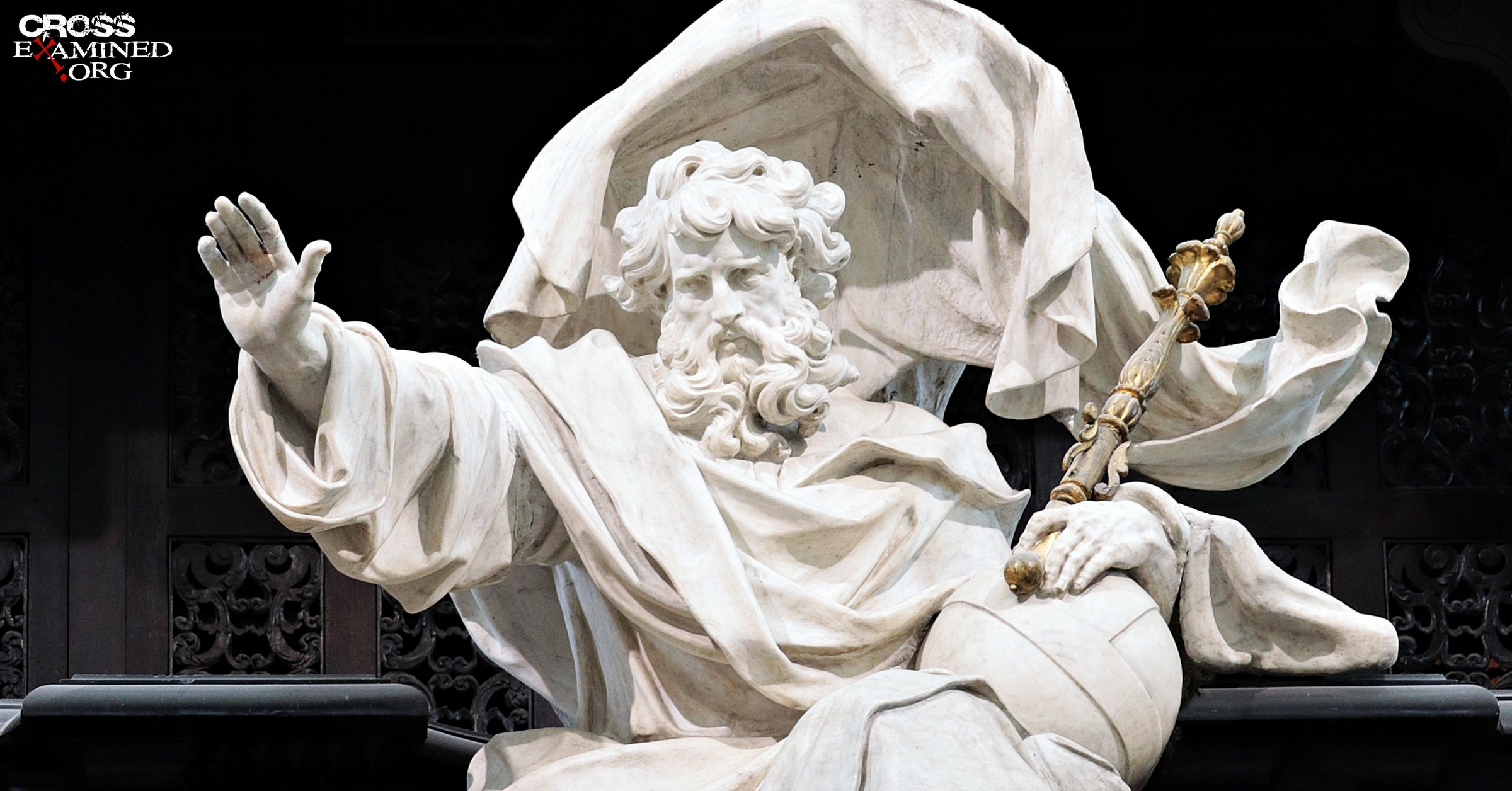
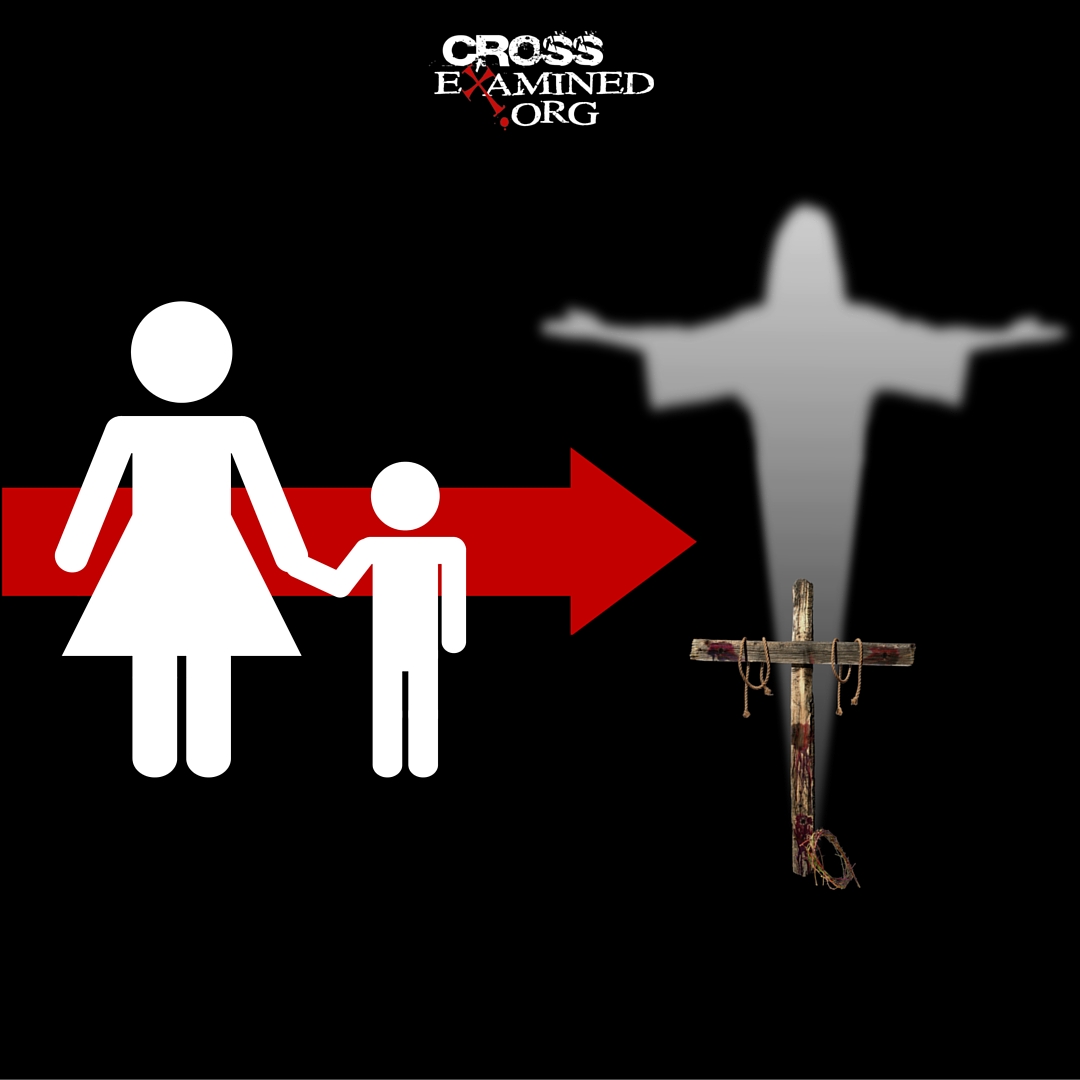

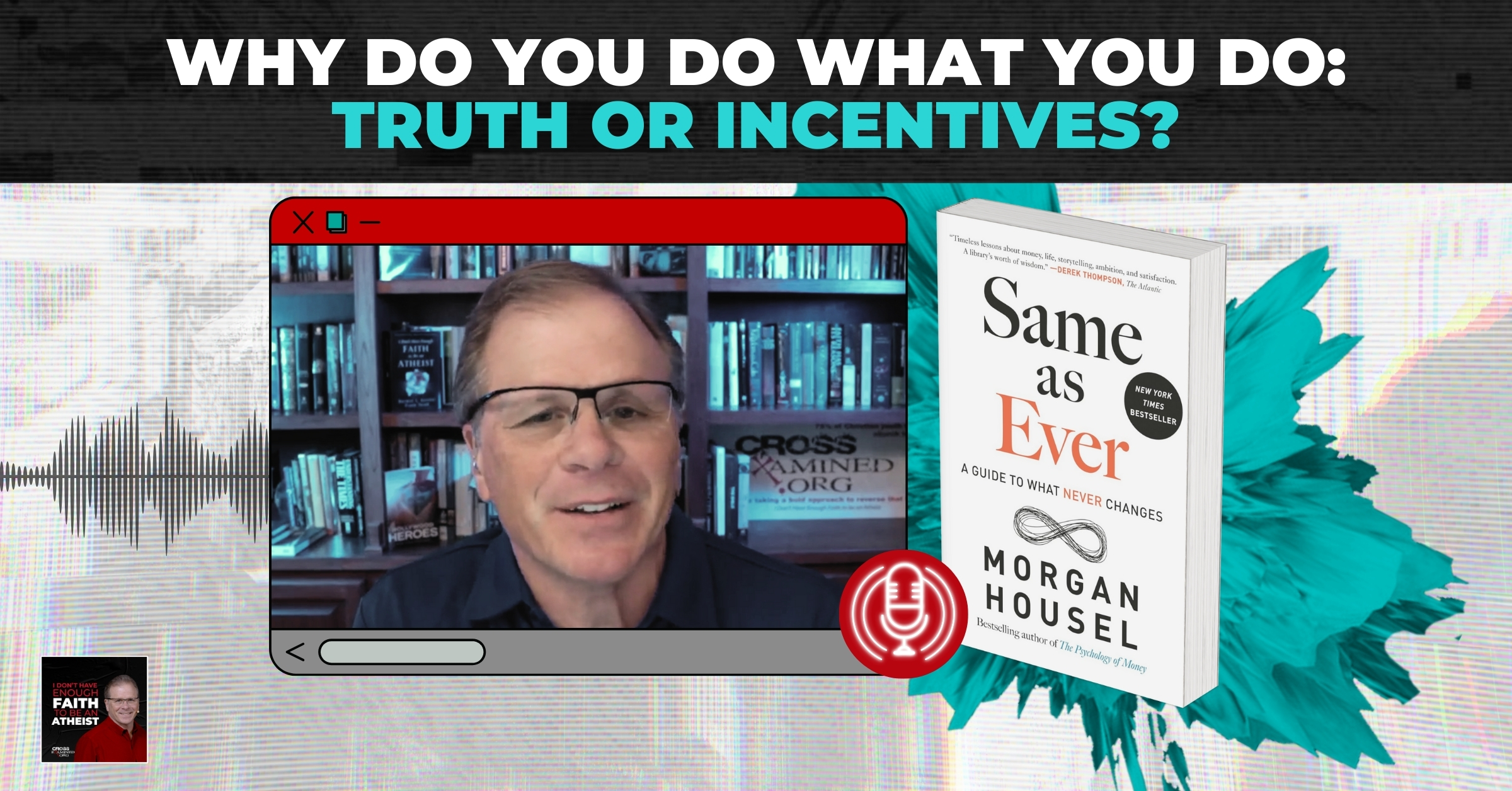
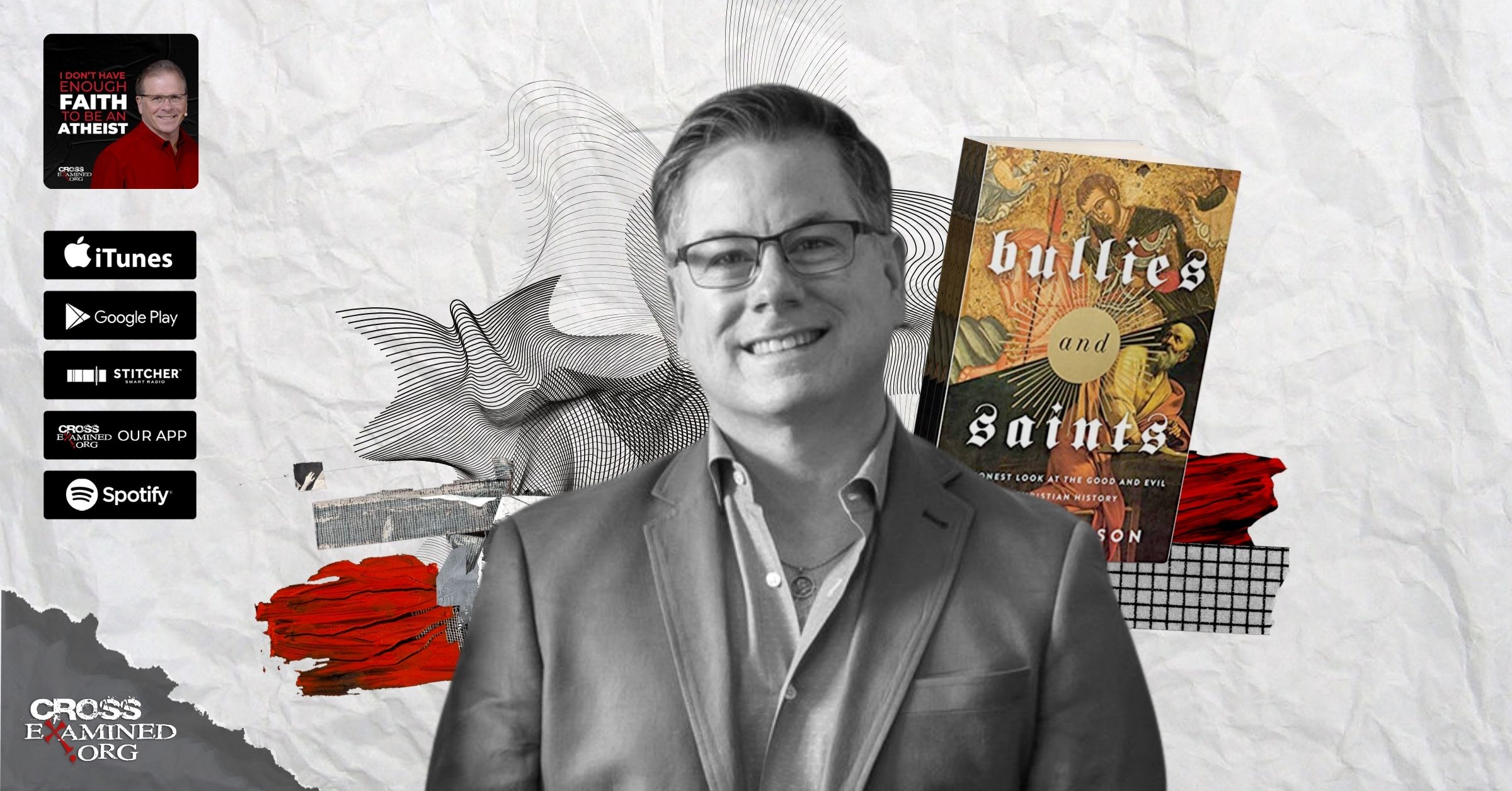

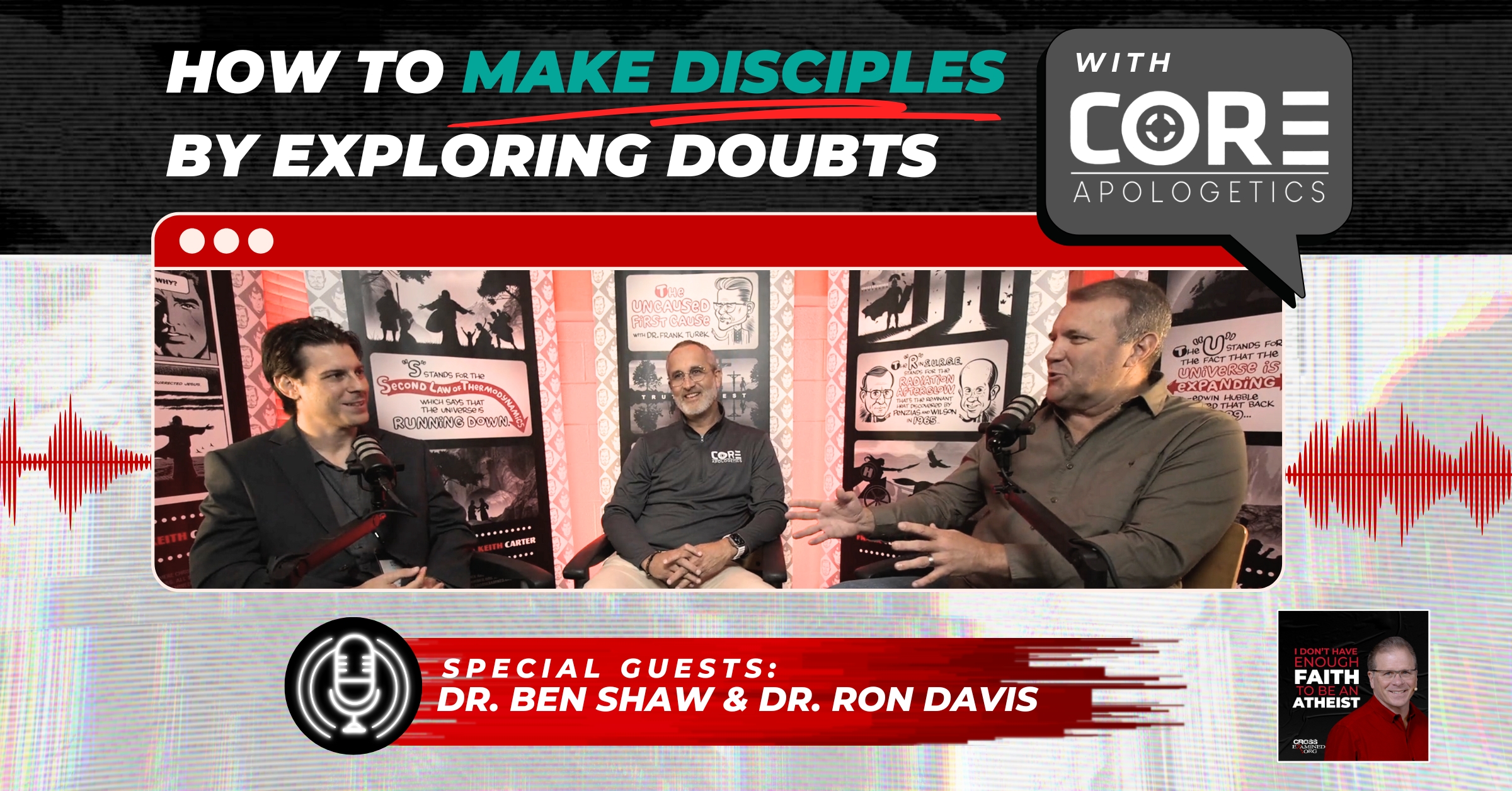


Leave a Reply
Want to join the discussion?Feel free to contribute!